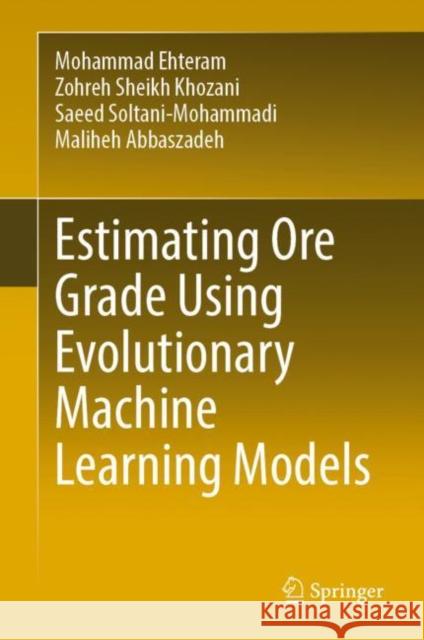Estimating Ore Grade Using Evolutionary Machine Learning Models » książka
Estimating Ore Grade Using Evolutionary Machine Learning Models
ISBN-13: 9789811981050 / Angielski / Twarda / 2022 / 101 str.
Estimating Ore Grade Using Evolutionary Machine Learning Models
ISBN-13: 9789811981050 / Angielski / Twarda / 2022 / 101 str.
(netto: 536,72 VAT: 5%)
Najniższa cena z 30 dni: 539,74
ok. 16-18 dni roboczych.
Darmowa dostawa!
This book examines the abilities of new machine learning models for predicting ore grade in mining engineering. A variety of case studies are examined in this book. A motivation for preparing this book was the absence of robust models for estimating ore grade. Models of current books can also be used for the different sciences because they have high capabilities for estimating different variables. Mining engineers can use the book to determine the ore grade accurately. This book helps identify mineral-rich regions for exploration and exploitation. Exploration costs can be decreased by using the models in the current book. In this book, the author discusses the new concepts in mining engineering, such as uncertainty in ore grade modeling. Ensemble models are presented in this book to estimate ore grade. In the book, readers learn how to construct advanced machine learning models for estimating ore grade. The authors of this book present advanced and hybrid models used to estimate ore grade instead of the classic methods such as kriging. The current book can be used as a comprehensive handbook for estimating ore grades. Industrial managers and modelers can use the models of the current books. Each level of ore grade modeling is explained in the book. In this book, advanced optimizers are presented to train machine learning models. Therefore, the book can also be used by modelers in other fields. The main motivation of this book is to address previous shortcomings in the modeling process of ore grades. The scope of this book includes mining engineering, soft computing models, and artificial intelligence.
This book examines the abilities of new machine learning models for predicting ore grade in mining engineering. A variety of case studies are examined in this book. A motivation for preparing this book was the absence of robust models for estimating ore grade. Models of current books can also be used for the different sciences because they have high capabilities for estimating different variables. Mining engineers can use the book to determine the ore grade accurately. This book helps identify mineral-rich regions for exploration and exploitation. Exploration costs can be decreased by using the models in the current book. In this book, the author discusses the new concepts in mining engineering, such as uncertainty in ore grade modeling. Ensemble models are presented in this book to estimate ore grade. In the book, readers learn how to construct advanced machine learning models for estimating ore grade. The authors of this book present advanced and hybrid models used to estimate ore grade instead of the classic methods such as kriging. The current book can be used as a comprehensive handbook for estimating ore grades. Industrial managers and modelers can use the models of the current books. Each level of ore grade modeling is explained in the book. In this book, advanced optimizers are presented to train machine learning models. Therefore, the book can also be used by modelers in other fields. The main motivation of this book is to address previous shortcomings in the modeling process of ore grades. The scope of this book includes mining engineering, soft computing models, and artificial intelligence.











